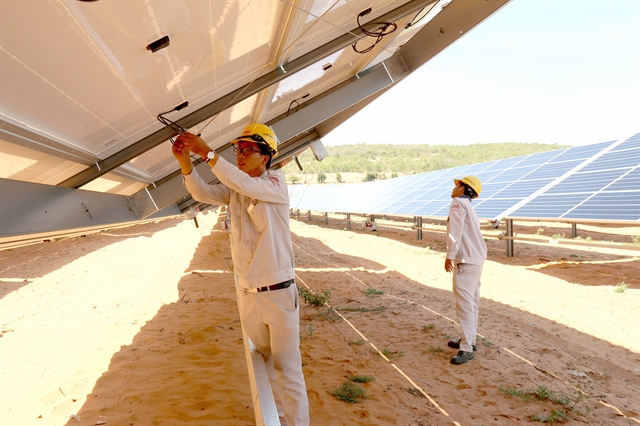 Society
Society

 |
| Engineers work on solar energy panels in Bắc Bình District in the southcentral province of Bình Thuận. — VNA/VNS Photo |
HÀ NỘI — The Ministry of Industry and Trade has recently issued the sector’s action plan on climate change response and green growth, aiming to have up to 15-20 per cent renewable energy sources in the total primary energy supply by 2030.
Accordingly, the ministry considers climate change response an important and long-term task, and the achievement of net zero emissions an opportunity to develop towards a low-carbon direction in accordance with national conditions and international trends.
Measures to respond to climate change will be included in strategies for the development of the industry and trade sector.
This move aims to ensure the flexible adaptation to short-, medium- and long-term impacts of climate change, as well as the sector’s stable development and growth. These actions will also minimise losses caused by natural disasters, and the consequences of extreme weather and climate.
Under the plan, the ministry targets the proportion of renewable energy sources in the total primary energy supply to 15-20 per cent by 2030 and to 25-30 per cent by 2045. Greenhouse gas emissions from the electricity production sector are to be maintained at about 42 million tonnes of carbon dioxide equivalent by 2050.
In addition, attention will be paid to promoting production and business models toward green growth. The focus will be on applying solutions for the economic and efficient exploitation and use of natural resources and energy. There is also an aim to apply digital technology and digital transformation, and developing infrastructure sustainability to improve growth quality, promote competitiveness and minimise negative impacts on the environment. — VNS




